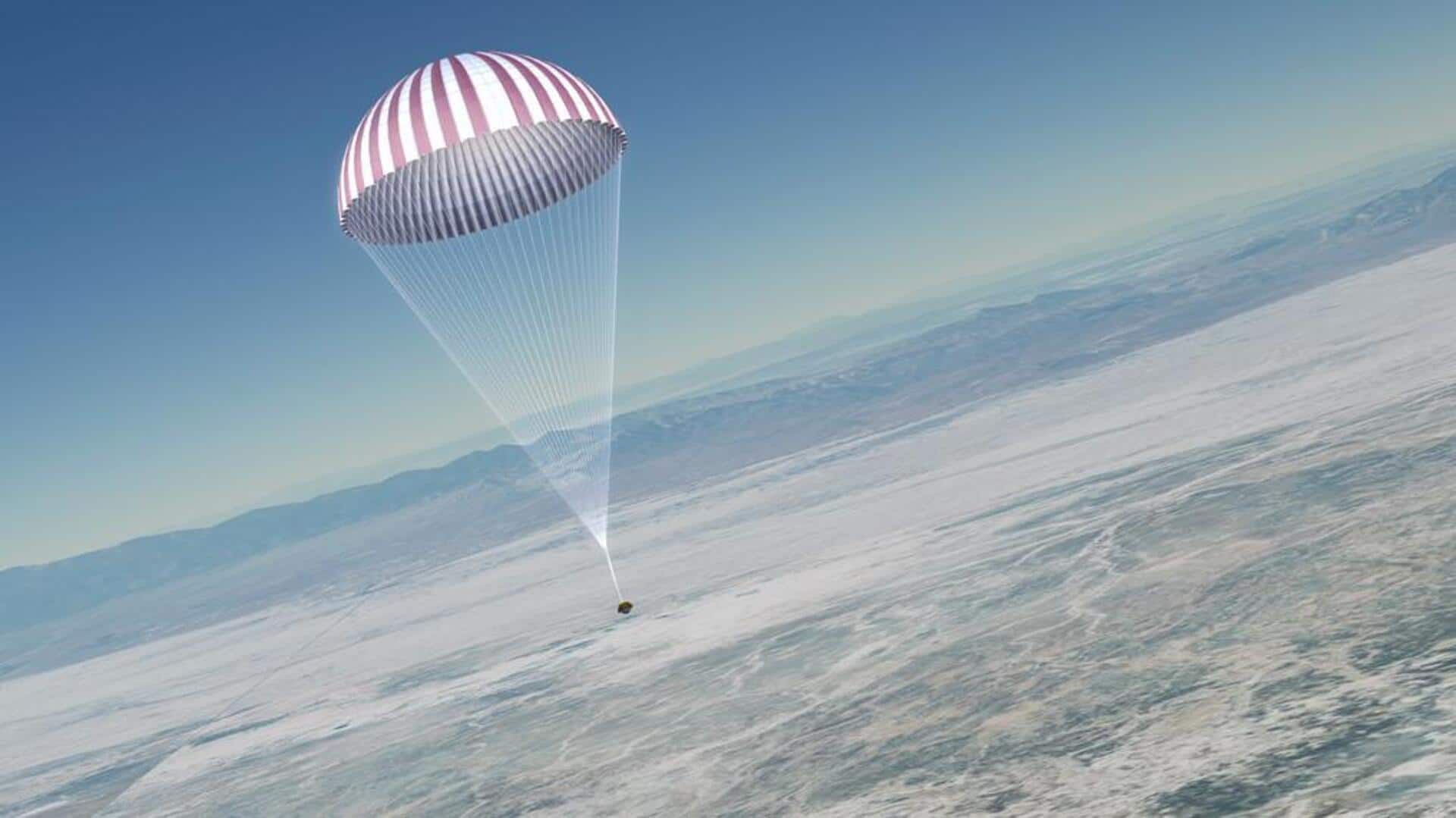
NASA's OSIRIS-REx mission delivers 4.5bn-year-old asteroid samples to Earth
What's the story
NASA's OSIRIS-REx probe has successfully returned a capsule containing samples of the near-Earth asteroid Bennu, marking a significant milestone in space exploration. After seven years, the mission has delivered soil and rock specimens of an asteroid that could provide vital insights into the early days of our solar system. The capsule made a parachute-guided touch-down at the Department of Defense's Utah Test and Training Range, after being dropped from about one lakh kilometers above Earth's surface.
Twitter Post
Check out NASA's official post
TOUCHDOWN! The #OSIRISREx sample capsule landed at the Utah Test and Training Range at 10:52am ET (1452 UTC) after a 3.86-billion mile journey. This marks the US's first sample return mission of its kind and will open a time capsule to the beginnings of our solar system. pic.twitter.com/N8fun14Plt
— NASA (@NASA) September 24, 2023
Processing
The samples are now being taken to Johnson Space Center
The OSIRIS-REx capsule will now be transported to the Johnson Space Center in Houston, Texas, for further analysis. Notably, it is NASA's first mission to return asteroid samples to Earth. The asteroid samples will be stored in a hyper-clean room, built exclusively for the mission, at this Texas facility to avoid contamination. This is the same place where samples that were returned from the Moon during NASA's Apollo mission were processed.
Details
The mission is estimated to have collected 250g of samples
OSIRIS-REx, short for Origins Spectral Interpretation Resource Identification Security -Regolith Explorer, was launched in September 2016. The $1 billion mission reached asteroid Bennu in December 2018. After a roughly two-year survey, the spacecraft successfully picked up rocks and soil from Bennu and stashed all of it in its sample return capsule. The mission is estimated to have collected 250g of asteroid specimen, believed to be 4.5 billion years old.
Analysis
The mission has started on its next task
Carbon-rich space rocks like Bennu are believed to have delivered life's building blocks to Earth billions of years ago and could thereby help better understand the evolution of our solar system. Bennu's samples will be distributed to researchers worldwide for various studies and will also be preserved for future generations to study. The mission also paves the way for future asteroid exploration. It is now headed to its next target, asteroid Apophis, and will reach it in 2029.